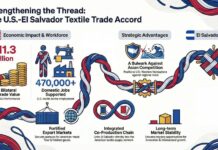Last week, Cambodian Prime Minister Hun Manet announced a substantial reduction in tariffs on products imported from the United States. Specifically, Cambodia reduces U.S. tariffs on 19 product categories from a maximum bound rate of 35% to an applied rate of 5%. This decision came in response to President Donald Trump’s announcement of a 49% tariff on Cambodian exports, which is set to take effect on April 9 this year.
In a formal letter, Manet urged the U.S. government to postpone the implementation of the tariff and to initiate negotiations promptly.
“In response to your recent announcement on April 2, 2025, imposing a 49-per cent tariff on Cambodian products from April 9, 2025, Cambodia proposes to negotiate with Your Honorable’s administration at the earliest convenient time and wishes to request that your esteemed government consider postponing the above-mentioned tariff implementation,” a domestic media outlet reported.
Following Manet’s directive, Commerce Minister Cham Nimul was tasked with reaching out to the U.S. Trade Representative (USTR) for further discussions on the issue. Nimul formally contacted USTR Jamieson Greer, highlighting Cambodia’s commitment to constructive dialogue and economic collaboration.
She reaffirmed that Cambodia reduces U.S. tariffs and urged Washington to establish a mechanism for negotiations.
Furthermore, she requested that the U.S. government extend the deadline for the new tariffs to allow time for stakeholder consultations and to explore alternative strategies that align with both U.S. economic priorities and Cambodia’s sustainable development goals.
As of now, the United States has yet to respond to Cambodia’s request for negotiations.
In light of the potential effects of the U.S. tariffs on Cambodia’s export sector, the Textile, Apparel, Footwear and Travel Goods Association in Cambodia (TAFTAC) has called on its members, workers, and the public to stay calm as the actual impacts are still being assessed.

































